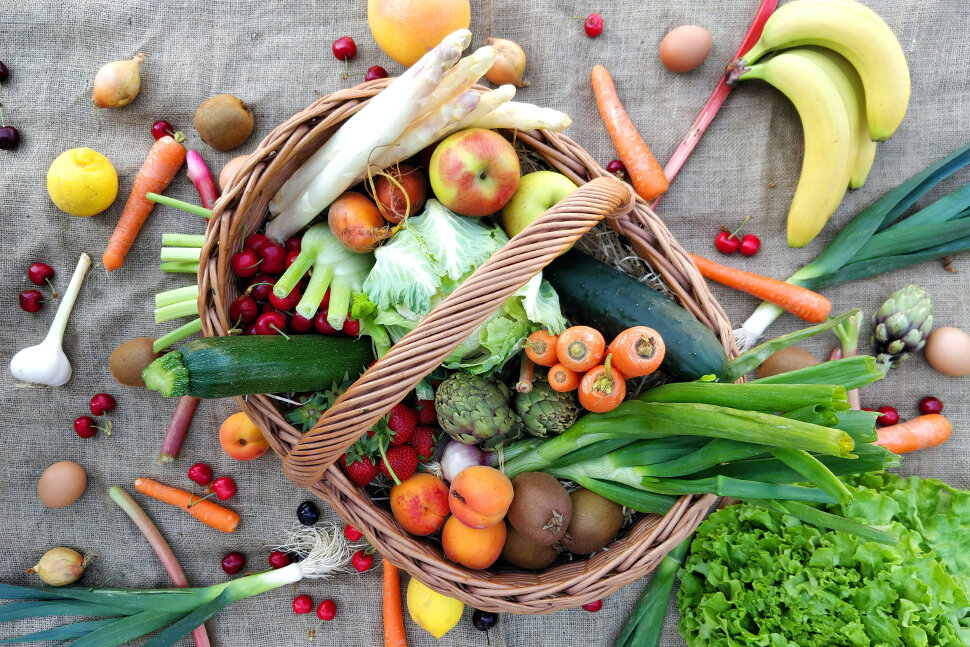Organic food is more popular than ever before. In order to protect nature, animals and the planet, more and more people are choosing to buy products that are organically produced. Consuming organic products also offers a number of benefits to our health: Organic food contains no pesticides, is lower in nitrates and significantly more flavorful than products from conventional farming. Organic food is currently experiencing a real boom in German gastronomy.
Many food service businesses feel an increasing responsibility to promote more sustainability in the industry and are innovating their concepts so that they have as little impact on the environment as possible. Apart from organic products, they focus increasingly on vegan or vegetarian cuisine and use more regional and seasonal foods.
Do gastronomic businesses need organic certification to further process organic food?
If restaurateurs wish to label all or only certain dishes from the menu with the addition of "organic", the business must first undergo an inspection procedure in accordance with the EC Organic Regulation. Promotional use of the term "organic" on the menu, in guest rooms and on a restaurant's website is only permitted with a successful organic certification. Many restaurateurs are not aware of this beforehand and they advertise organic cuisine without the required certification, which in the worst case may result in legal consequences.
However, there is one exception for gastronomic businesses: Anyone who only sells organic products such as organic beverages or small, packaged organic snacks in their establishment and does not process them in the kitchen can do so without the inspection process.
How can I transform my restaurant to organic?
Would you like to convert your gastronomic business to organic? Then it is important to test in the first step whether your guests would appreciate the offer and would be willing to pay a surcharge for the higher quality of your dishes, if required. To do this, it is useful to first offer a small selection of dishes with organically grown ingredients and calculate the cost of goods. Especially popular and flexibly applicable products promise the greatest prospects of success.
Start with a specific organic product and gradually replace all dishes and ingredients with organic quality food to strengthen the authenticity and trustworthiness of your business and transform your restaurant to a holistic organic concept.
Which organic products offer high potential for restaurant menus?
In gastronomy, many conventionally grown products can be replaced by organic food. For animal products, go for organic meat, organic fish, organic milk and dairy products such as cheese, cottage cheese, cooking cream and organic eggs. In addition, you can offer organic plant products such as organic vegetables, organic fruits, organic herbs and organic mushrooms. Likewise, beverages can be substituted with organic alternatives such as organic juices, fair-trade organic coffee, organic tea, organic lemonades or alcoholic beverages from organic sources.
Environmental awareness also extends to the topic of tableware and packaging. Along with organic food, high-quality, reusable tableware or recyclable packaging for out-of-home sales can have a positive impact on your restaurant's sustainability.
Practical tips for transforming your gastronomic business to organic
In order for a successful transition of your restaurant to an organic concept, you should be exactly clear on how to proceed and how to purchase the new ingredients. The following tips will assist you:
- When buying wholesale, look for products with organic certification. This can be seen on a label on the packaging or from information provided in the product range catalog or order set. Trustworthy organic food labels include, above all, the hexagonal EU organic label as well as seals of organic farming associations such as Naturland or Demeter.
- Get detailed advice from wholesalers about their organic range. Many retail partners have extensive organic food product catalogs and can assist you in changing your offering to organic.
- Meanwhile, there are some organic wholesalers who specialize in organic products for gastronomy. With these, you can be sure in advance that all food is organically grown and meets gastronomic requirements.
- Take advantage of consulting offers from dealers. Many food manufacturers provide contacts for questions about suitable organic recipes and individual product advice, for example, if you need help putting together your new organic menu.











